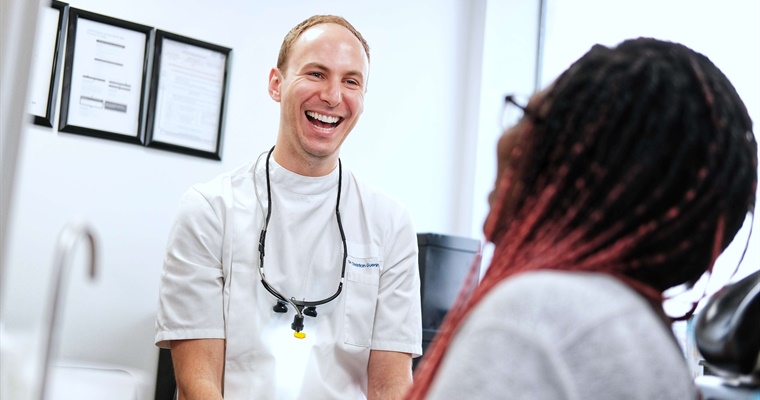Research into ‘professionalism’ published

Today we published Professionalism: A mixed-methods research study, independent research commissioned to inform a better shared understanding of professionalism.
The research marks a major milestone in our programme to develop new ‘principles of professionalism’, which will also see us engage extensively with our stakeholders.
Some key findings
- Professionalism is a multifaceted and context-dependent concept, and therefore, not easily defined for every circumstance or individual.
- Professionalism is viewed differently by members of the public and dental professionals in some instances. For example, views about professionalism in personal time, experience during the appointment, and whether the exchange of money for dental care plays a role. Dental professionals also typically framed professionalism in negative terms (i.e. what not to do).
- These differences have important implications for the relationship between patients and professionals – and are likely to continue because professionals form their understanding of professionalism largely through observation.
- Good communication and involving patients in decision-making is a key element of professionalism and an essential foundation of trust.
On publication of the research, our Executive Director, Strategy, Stefan Czerniawski, said:
“Professionalism is important both to patients and to dental professionals themselves – but they don’t always mean the same thing by it. This new research makes an important contribution to the shared understanding of what it means to be a professional and to the development of principles of professionalism. It is also a crucial part of our increased focus on upstream regulation, which aims to prevent harm from taking place. I look forward to discussing the research findings with patients and professionals as the work continues.”
About the research
Professionalism: A mixed-methods research study was commissioned from the Association of Dental Education in Europe. The four-part review included a rapid evidence assessment of the global literature relating to dentistry and wider allied healthcare professions, scoping interviews with topic experts, focus groups with dentists, dental care professionals and members of the public, and a modified two-round Delphi survey. The survey was piloted with dental professionals and members of the public and had over 1,000 responses (over two rounds).
You can read the full report in our research section.
 eGDC
eGDC